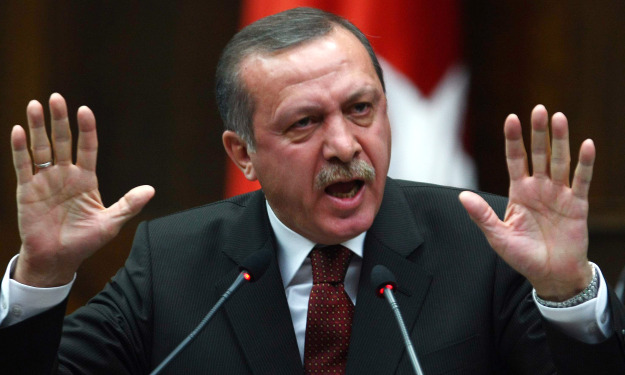
From Steven A. Cook, Foreign Policy: Nowhere is Turkey asserting itself more than in the Middle East, where it has gone from a tepid observer to an influential player in eight short years. In the abstract, Washington and Ankara do share the same goals: peace between Israel and the Palestinians; a stable, unified Iraq; an Iran without nuclear weapons; stability in Afghanistan; and a Western-oriented Syria. When you get down to details, however, Washington and Ankara are on the opposite ends of virtually all these issues.
For the first time in its history, Ankara has chosen sides in the Israeli-Palestinian conflict, demanding that Israel take steps to ease the blockade of Gaza or risk unspecified "consequences." Well before the recent crisis, the Turks had positioned themselves as thinly veiled advocates for Hamas, which has long been on the U.S. State Department’s list of terrorist organizations. In public statements, Turkish Prime Minister Recep Tayyip Erdogan has compared Turkey’s Islamists and Hamas. Implicit in these declarations is a parallel to Erdogan’s own Justice and Development Party, whose predecessors were repeatedly banned from politics. …
The easy temptation is to blame creeping Islamization for Turkey’s foreign-policy shift. There is no denying that there is an ideological component to much of Erdogan’s rhetoric, especially when it comes to Israel. However, the prime minister is not the architect of Ankara’s foreign policy; Foreign Minister [Ahmet] Davutoglu is the man responsible for the country’s new international activism. …
The stark reality is that while Turkey and the United States are not enemies in the Middle East, they are fast becoming competitors. Whereas the United States seeks to remain the predominant power in the region and, as such, wants to maintain a political order that makes it easier for Washington to achieve its goals, Turkey clearly sees things differently. The Turks are willing to bend the regional rules of the game to serve Ankara’s own interests. If the resulting policies serve U.S. goals at the same time, good. If not, so be it.
Steven A. Cook is the Hasib J. Sabbagh senior fellow for Middle Eastern studies at the Council on Foreign Relations. (photo: Adem Altan/AFP/Getty)
Image: afp%206%202%2010%20Turkish%20PM%20Recep%20Tayyip%20Erdogan.jpg
